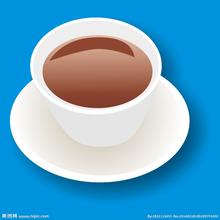Boutique coffee beans Cuskabapa in El Salvador
In Cuscacbapa, El Salvador, coffee beans are packed and ready for export.
Salvadoran coffee is a Central American specialty, light, aromatic, pure and slightly acidic. Like Guatemala and Costa Rica, coffee in El Salvador is graded according to altitude, with the higher the altitude, the better the coffee. The best brand is Pipil, the Aztec Mayan name for coffee, which has been approved by the Organic Certified Institute of America. Another rare coffee is Pacamara, a hybrid of Pacas and Maragogype. The coffee is best grown in western El Salvador, adjacent to Santa Ana, near the border with Guatemala. Pakmara coffee grains are full, when the aroma is not too strong.
Salvadoran Coffee-Hot Springs Coffee
El Salvador is tied with Mexico and Guatemala as the producer of Asa and Meldo, and is competing with other countries for the top one or two places in Central America. Highland origin, for the size of large coffee beans, fragrant taste mild. As in Guatemala and Costa Rica, coffee in El Salvador is graded according to altitude, with the higher the altitude, the better the coffee. There are three grades according to altitude: SHB= high, HEC= medium high, CS= low.
El Salvador's unique superior variety, Pacamara, is a hybrid of Pacas-an abrupt variant of the Bourbon species found in El Salvador, with the giant bean Maragogype-an abrupt variant of the Tibica species found in Brazil.
The interesting thing about Christmas Farm coffee is that it is refined in secret, using mineral rich hot spring water to process green coffee beans. This farm is located in fertile volcanic soil and has abundant natural hot spring water, so all of this natural hot spring water is used when processing raw beans; there are many farms in the world that grow coffee, but this method is still rare.
Salvadoran coffee beans| w.kaf.name Salvadoran coffee refers to coffee beans produced in the small country of El Salvador in South America.
Additional information about this spa: The water from the source is 85 degrees Celsius. Use 2-inch pipes to channel the water to six different thermal pools at different elevations. The temperature of the sixth thermal pool is 32 to 34 degrees Celsius. Then use this cooled thermal water to process coffee beans. This hot spring water flows continuously all year round. Locals drink this hot spring water. It has a pH of 8.02 and contains ingredients that sweeten coffee.
Mild Salvadoran coffee.
El Salvador is one of the small countries in Central America and has a very dense population. Its coffee flavor is characterized by excellent balance.
Today, this coffee accounts for 40% of the country's exports. The best quality coffee is exported to Germany from January to March after 35% of the extra hard beans.
In the early 1990s, guerrilla warfare greatly damaged the country's national economy, reducing coffee production from 3.5 million bags in the early 1970s to 2.5 million bags in 1990 - 1991. The eastern part of the country was most affected by guerrilla warfare, and many farmers and workers were forced to leave their estates. The shortage of funds has caused coffee production to plummet, from 1200 kilograms per hectare in the past to less than 900 kilograms per hectare today. In addition, in 1986 the Government imposed an additional 15 per cent duty on coffee exports, i.e. 15 per cent on top of the existing 30 per cent tax. Taxes, combined with unfavourable exchange rates, severely reduced coffee exports and, with them, quality.
The government finally realized the huge role of coffee in the national economy, such as solving employment, earning foreign exchange and developing agriculture, so it privatized part of the coffee export industry in 1990, hoping to increase the yield of coffee in the export market.

Important Notice :
前街咖啡 FrontStreet Coffee has moved to new addredd:
FrontStreet Coffee Address: 315,Donghua East Road,GuangZhou
Tel:020 38364473
- Prev

The Coffee producing area of India introduces the Western Gaozhi Mountains
one。 In 1808, coffee was first introduced to Colombia, which was brought by a priest from the French Antilles via Venezuela. Today the country is the second largest producer after Brazil. The origin of Colombian coffee: Jamaican Colombian coffee is one of the few original coffee sold in the world under the name of the country. In terms of quality, it
- Next

Introduction of Honduran raw bean culture boutique coffee beans
Honduran coffee seems strange to many coffee drinkers. When it comes to coffee production, the geographical conditions of Honduras are no less than those of neighboring coffee-producing countries such as Guatemala and Nicaragua. However, in the past, Honduras was less well-known in the consumer market because it did not have strong support in the handling and transportation of raw beans. Honduras (Honduras) 2
Related
- Does Rose Summer choose Blue, Green or Red? Detailed explanation of Rose Summer Coffee plots and Classification in Panamanian Jade Manor
- What is the difference between the origin, producing area, processing plant, cooperative and manor of coffee beans?
- How fine does the espresso powder fit? how to grind the espresso?
- Sca coffee roasting degree color card coffee roasting degree 8 roasting color values what do you mean?
- The practice of lattes: how to make lattes at home
- Introduction to Indonesian Fine Coffee beans-- Java Coffee producing area of Indonesian Arabica Coffee
- How much will the flavor of light and medium roasted rose summer be expressed? What baking level is rose summer suitable for?
- Introduction to the characteristics of washing, sun-drying or wet-planing coffee commonly used in Mantenin, Indonesia
- Price characteristics of Arabica Coffee Bean Starbucks introduction to Manning Coffee Bean Taste producing area Variety Manor
- What is the authentic Yega flavor? What are the flavor characteristics of the really excellent Yejasuffi coffee beans?

